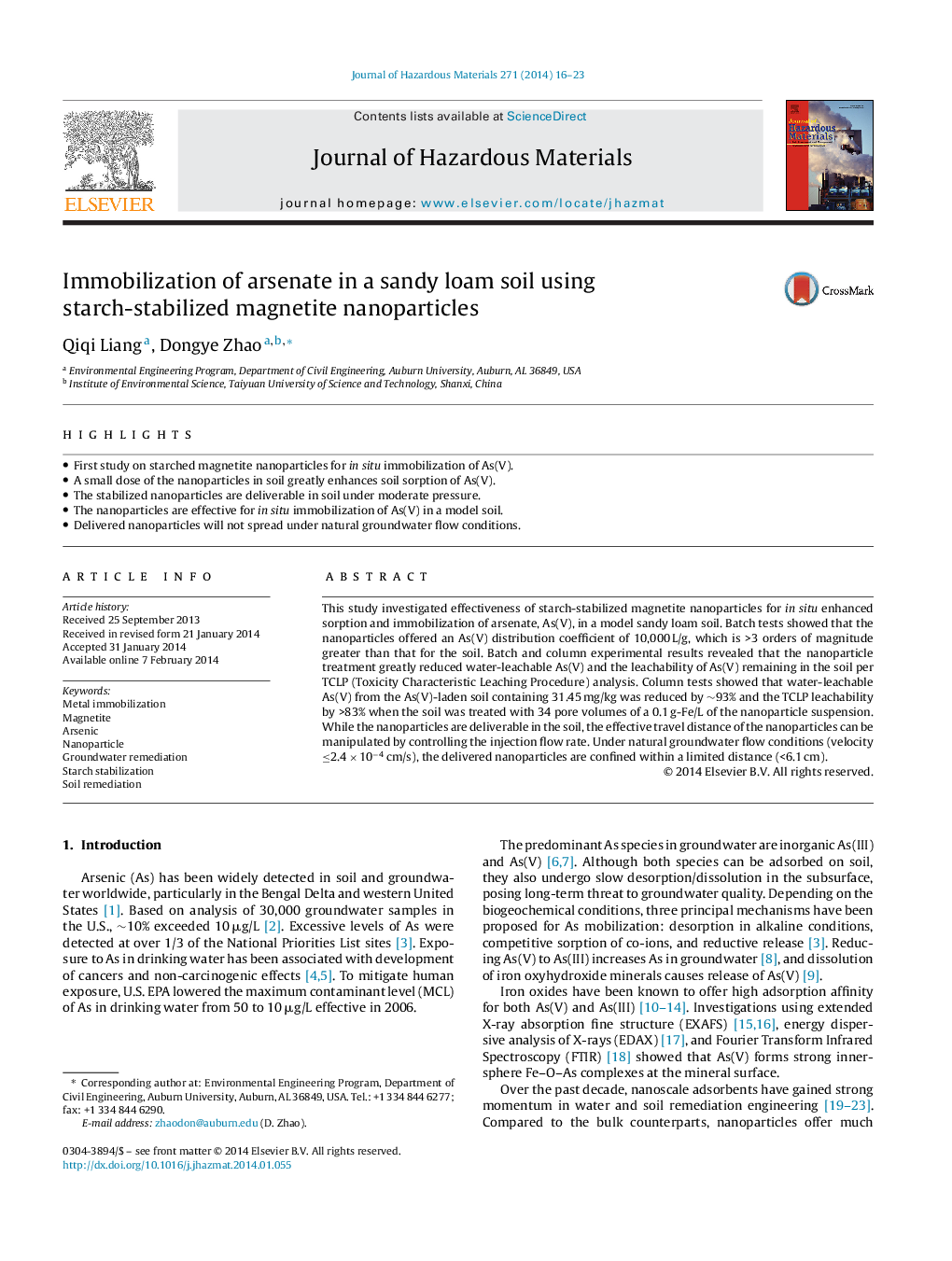| Article ID | Journal | Published Year | Pages | File Type |
|---|---|---|---|---|
| 6971647 | Journal of Hazardous Materials | 2014 | 8 Pages |
Abstract
This study investigated effectiveness of starch-stabilized magnetite nanoparticles for in situ enhanced sorption and immobilization of arsenate, As(V), in a model sandy loam soil. Batch tests showed that the nanoparticles offered an As(V) distribution coefficient of 10,000 L/g, which is >3 orders of magnitude greater than that for the soil. Batch and column experimental results revealed that the nanoparticle treatment greatly reduced water-leachable As(V) and the leachability of As(V) remaining in the soil per TCLP (Toxicity Characteristic Leaching Procedure) analysis. Column tests showed that water-leachable As(V) from the As(V)-laden soil containing 31.45 mg/kg was reduced by â¼93% and the TCLP leachability by >83% when the soil was treated with 34 pore volumes of a 0.1 g-Fe/L of the nanoparticle suspension. While the nanoparticles are deliverable in the soil, the effective travel distance of the nanoparticles can be manipulated by controlling the injection flow rate. Under natural groundwater flow conditions (velocity â¤2.4 Ã 10â4 cm/s), the delivered nanoparticles are confined within a limited distance (<6.1 cm).
Related Topics
Physical Sciences and Engineering
Chemical Engineering
Chemical Health and Safety
Authors
Qiqi Liang, Dongye Zhao,
